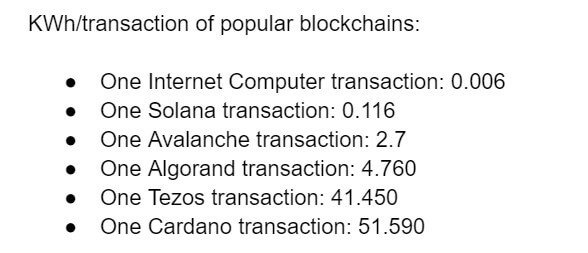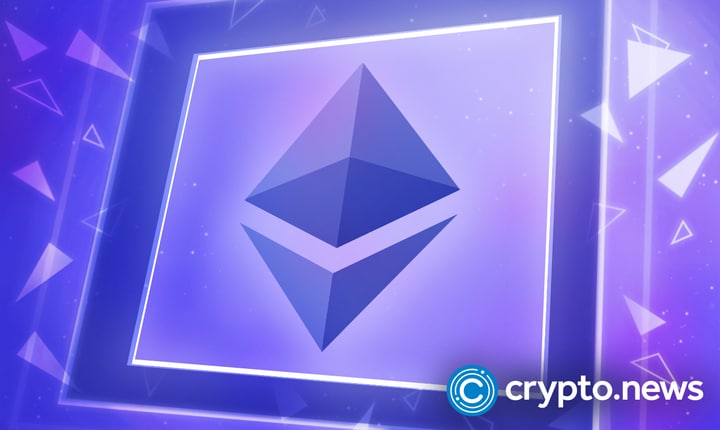2024-9-12 18:25 |
How green is crypto, really? Activists accuse the industry of environmentally-hazardous side effects, but how true are these claims? What is the environmental impact of crypto?
A new report from UCL, alongside an exclusive interview, addresses these questions and more.
Mining CostsThe alleged environmental costs of Bitcoin and cryptocurrency are an enduring thorn in the industry’s side. Prominent actors frequently debate controversial claims, but crypto enthusiasts are quick to dispute the harshest assertions.
Studies from reputable scientific agencies have repeatedly claimed that mining harms the environment, and this sentiment translates into political anti-crypto sentiment. However, news coverage frequently ignores the community’s best efforts, and exaggerations run rampant.
How can one make sense of all this? What are the charges of crypto’s environmental impact, and how serious are they?
To help answer some of these questions, BeInCrypto conducted an exclusive interview with Wes Geisenberger, VP of Sustainability and ESG at Hedera, a decentralized public ledger and stablecoin issuer. The firm seeks to stand above its Web3 competitors in terms of carbon footprint and sustainability.
Interestingly, Hedera is a partner of the UCL Centre for Blockchain Technologies, whose new reports on crypto’s environmental impact cast doubt on the proof-of-stake model altogether.
PoW or PoSThe heart of UCL’s new report is on the notion that Proof-of-Stake (PoS) blockchains are uniformly more environmentally friendly than Proof-of-Work (PoW) ones.
PoW protocols like Bitcoin are fully trustless and decentralized, and transactions are validated through a competitive network of miners. These equations solved by miners’ collective computing power update the blockchain and generate new coins, but different miners have an inherently adversarial relationship.
For PoS protocols like Ethereum, however, the blockchain processes transactions differently. Using validators instead of miners, new block creators must “stake” their own tokens rather than computational power, allowing for a more collaborative experience. This, allegedly, makes the mining experience more efficient.
Read more: Proof of Work and Proof of Stake Explained
According to PoW advocates, the main drawback of the latter system is that it is much more prone to centralization. Nonetheless, UCL’s new report seeks to interrogate these claims more closely.
Are all PoS blockchains created equal? If these protocols are greener than PoW, how much greener are they? What are the best ways that the industry can face these challenges head on?
As far as Geisenberger is concerned, the entire space “has a responsibility to understand its impact on the world around us and in particular the environment.” He added that “we need to measure our impacts like the rest of the financial and technology world, built on standards and in an easily comparable way. There’s also a need to extend that to better understand the impact of how technologies, treasuries, and users leverage their resources to achieve positive impact.”
If the crypto ecosystem wants to impact our natural ecosystem, attitudes like this are crucial.
Bitcoin’s WasteSome of the bitterest arguments over crypto’s ecological impact center around Bitcoin, the first and largest cryptocurrency. The debates over Bitcoin often take place on the same well-trodden territory: what percentage of mining electricity is renewable? Do techniques like flared gas mining constitute green energy or not?
Bitcoin’s biggest advocates are quick to point out all the massive green energy use cases that literally power the industry. Hydroelectric operations can sell excess energy in low-demand periods, productively using clean power that would otherwise go to waste. Flared gas mining is similar, with an inevitable waste product of the petrochemical industry getting a new use.
Aren’t Bitcoin’s critics eager to paint its impact in the most damning light possible? That may or may not be true, but UCL asserts that even the rosiest picture is still pretty grim.
Bitcoin vs Altcoins Energy Waste. Source: UCLAs the data shows, Bitcoin stands head-and-shoulders above all PoS blockchains surveyed in terms of electrical consumption. The study concluded that “all of the PoS-based DLTs (Distributed Ledger Tokens) analyzed have an energy consumption that is negligible compared to that of major PoW blockchains. To the extent that energy consumption may be considered problematic, this is not an issue in any PoS design.”
The study lists a number of limitations in its methodology and was not able to nail down a primary cause for these discrepancies. Still, as Geisenberger put it, “task forces across the industry [are] created to answer difficult questions in increased regulatory and voluntary disclosures in carbon accounting.”
A wide range of organizations are tackling these and other questions, and their results contribute to a greater scientific consensus.
Looking ForwardUltimately, environmental impacts in the industry are a very controversial issue, and bad-faith actors exacerbate it. Both pro- and anti-crypto advocates can twist meanings and misinterpret studies, especially for concrete political ends.
PoW supporters have legitimate concerns besides the environmental, too, further complicating the issue. If PoS blockchains are not truly decentralized, does it matter if their energy consumption is lower? If PoW consumes energy that would otherwise be “wasted,” are its higher costs negated?
The crypto community must grapple with these and other questions for years to come. Luckily, with an innovative spirit and dedicated researchers like those at UCL, we’re sure to meet the challenge.
The post Proof of Stake Altcoins Crush Bitcoin in Energy Efficiency appeared first on BeInCrypto.
origin »Bitcoin price in Telegram @btc_price_every_hour
Breakout Stake (BRX) íà Currencies.ru
|
|


























